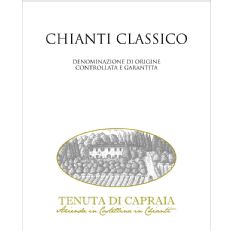Sign In Chef

By using our free meal planner (and the rest of spoonacular.com) you have to agree that you and only you are responsible for anything that happens to you because of something you have read on this site or have bought/cooked/eaten because of this site. After all, the only person who controls what you put in your mouth is you, right?
Spoonacular is a recipe search engine that sources recipes from across the web. We do our best to find recipes suitable for many diets — whether vegetarian, vegan, gluten free, dairy free, etc. — but we cannot guarantee that a recipe's ingredients are safe for your diet. Always read ingredient lists from the original source (follow the link from the "Instructions" field) in case an ingredient has been incorrectly extracted from the original source or has been labeled incorrectly in any way. Moreover, it is important that you always read the labels on every product you buy to see if the product could cause an allergic reaction or if it conflicts with your personal or religious beliefs. If you are still not sure after reading the label, contact the manufacturer.
We also attempt to estimate the cost and calculate the nutritional information for the recipes found on our site. Again, we cannot guarantee the accuracy of this information. Additionally, our nutrition visualizer that suggests that you limit sodium, sugar, etc., and get enough protein, vitamins, and minerals is not intended as medical advice. Similarly, our health tips are based on articles we have read from various sources across the web, and are not based on any medical training. The team behind spoonacular does not possess any medical qualifications and the information may be found to be incorrect or out of date based on future research. If you need help planning your diet or determining which foods (and recipes) are safe for you, contact a registered dietitian, allergist, or another medical professional.
Spoonacular is not responsible for any adverse effects or damages that occur because of your use of the website or any information it provides (e.g. after cooking/consuming a recipe on spoonacular.com or on any of the sites we link to, after reading information from articles or shared via social media, etc.)
×$8.07 per serving

5 likes

Ready in 45 minutes

Spoonacular Score: 62%
Farmer's Market Wild Mushroom Risotto is a Mediterranean hor d'oeuvre. This gluten free recipe serves 6 and costs $8.07 per serving. One portion of this dish contains about 11g of protein, 29g of fat, and a total of 569 calories. 5 people have tried and liked this recipe. A mixture of salt and pepper, chicken broth, crimini mushrooms, and a handful of other ingredients are all it takes to make this recipe so yummy. It is brought to you by Foodista. From preparation to the plate, this recipe takes roughly 45 minutes. All things considered, we decided this recipe deserves a spoonacular score of 61%. This score is solid. Similar recipes include Farmer’s Market Quesadillas, Farmer’s Market Omelet, and Farmer's Market Toss.
Risotto works really well with Chianti, Verdicchio, and Trebbiano. Italians know food and they know wine. Trebbiano and Verdicchio are Italian white wines that pair well with fish and white meat, while Chianti is a great Italian red for heavier, bolder dishes. You could try Tenuta di Capraia Chianti Classico. Reviewers quite like it with a 4.6 out of 5 star rating and a price of about 18 dollars per bottle.
 Chianti Classico Tenuta di Capraia is a wine with an optimal complexity and structure. Ruby red color with violet tinges. Intense and rich aroma, vinous, fruit-driven. Pleasant cherry notes, refreshing and well-balanced with hints of integrated vivid tannin.
Chianti Classico Tenuta di Capraia is a wine with an optimal complexity and structure. Ruby red color with violet tinges. Intense and rich aroma, vinous, fruit-driven. Pleasant cherry notes, refreshing and well-balanced with hints of integrated vivid tannin.
» Get this wine on Wine.com








































Read the detailed instructions on Foodista.com – The Cooking Encyclopedia Everyone Can Edit